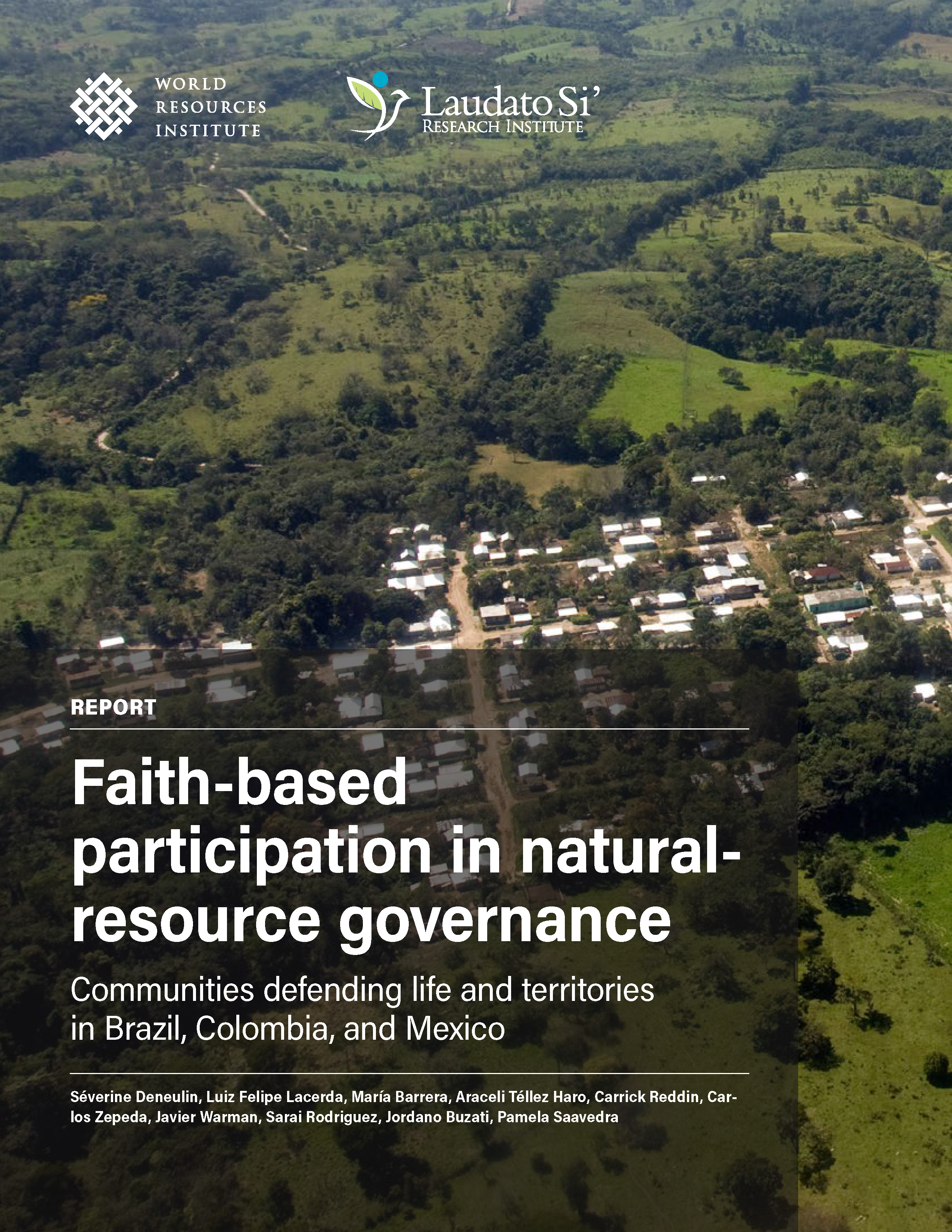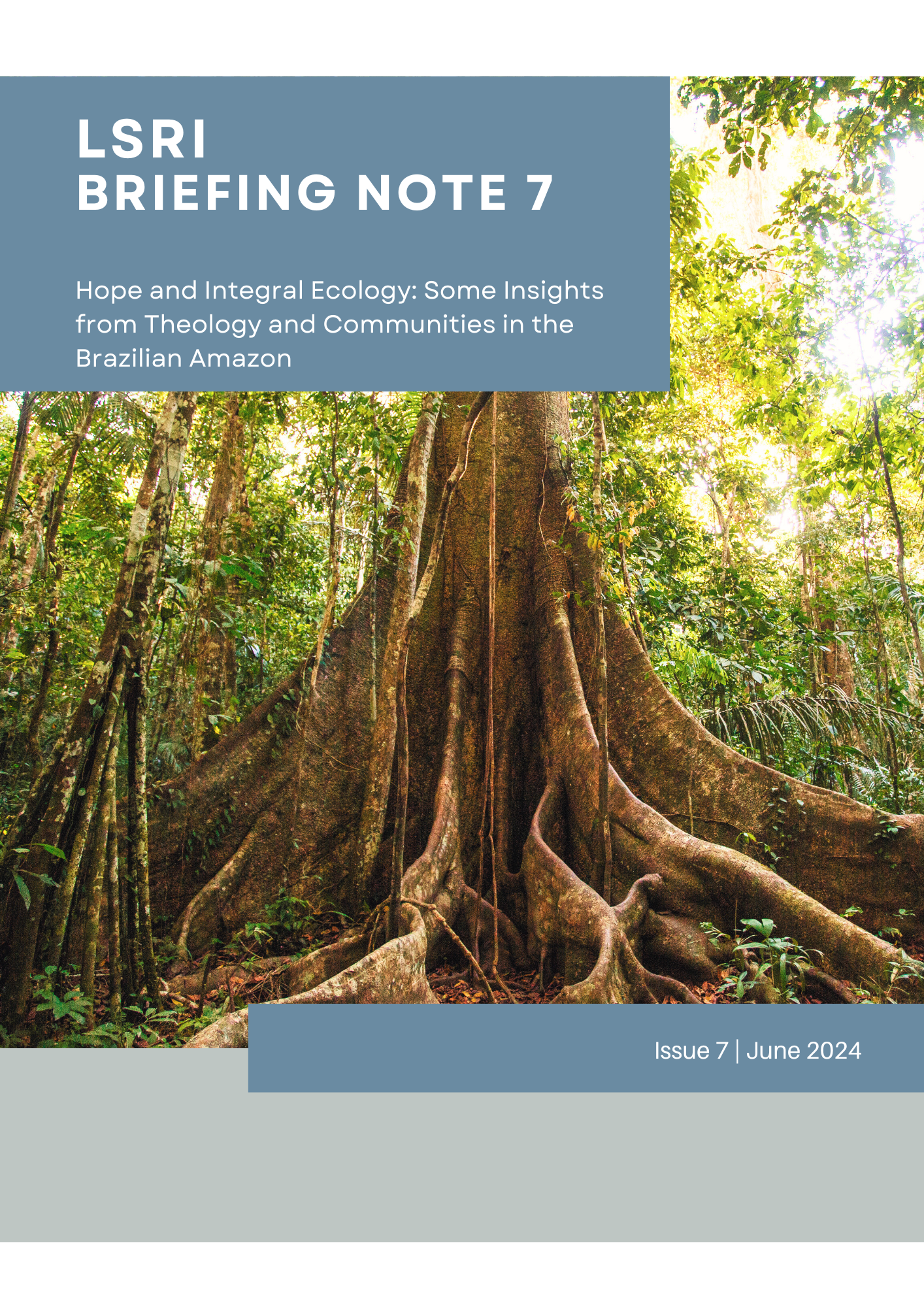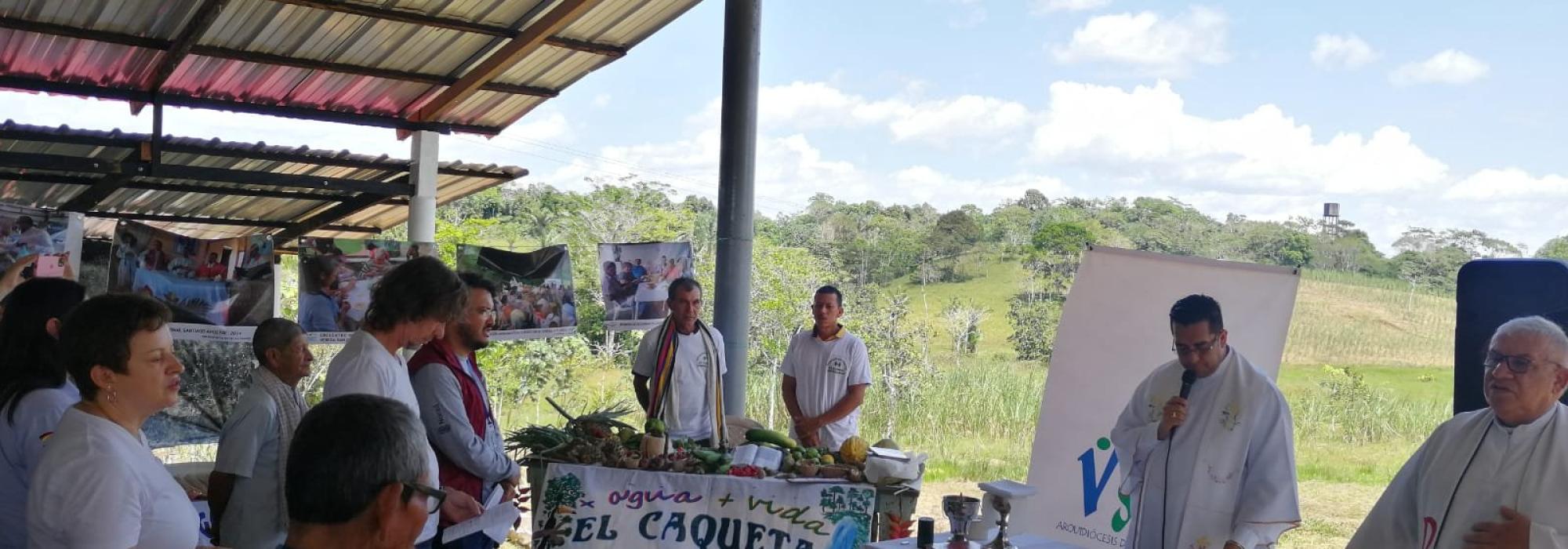
Faith-Based Participation in Natural Resource Governance
Key Details
This research project was conducted in partnership with the Faith & Sustainability Initiative of the World Resource Institute from November 2022 to April 2024. The research findings are published in a report that was successfully launched on the 26th of June 2024 in an online webinar. The report includes recommendations for specific future capacity building and local interventions.
Read the Presentation Slides of the Report or download the PDF of the presentation
This project was made possible thanks to a grant from the Natural Resources and Climate Change Program of the Ford Foundation. We are grateful for the comprehensive support across the project's diverse stages.
With more than 80 per cent of the world’s population estimated to be affiliated to a religion, international development organisations have increasingly acknowledged the importance of religious actors in development policy and practice, including in health, education, climate change and environmental issues. But the dynamics between religious actors and development processes at the local level, and their dynamics of interaction with other actors in contesting or shaping development discourses and policies, remain little understood. This report unpacks these dynamics within four local territories in Latin America, in Brazil, Colombia, and Mexico, which are being profoundly transformed by an infrastructure or extractive industry project driven by certain narratives of social and economic development.
The Report: Communities Defending Life and Territories in Brazil, Colombia and Mexico
Since the turn of the millennium, there has been an increasing interest in the role of faith communities in development processes. However, little is known about the role they play in natural resource governance disputes and the mechanisms through which they influence natural resource governance.
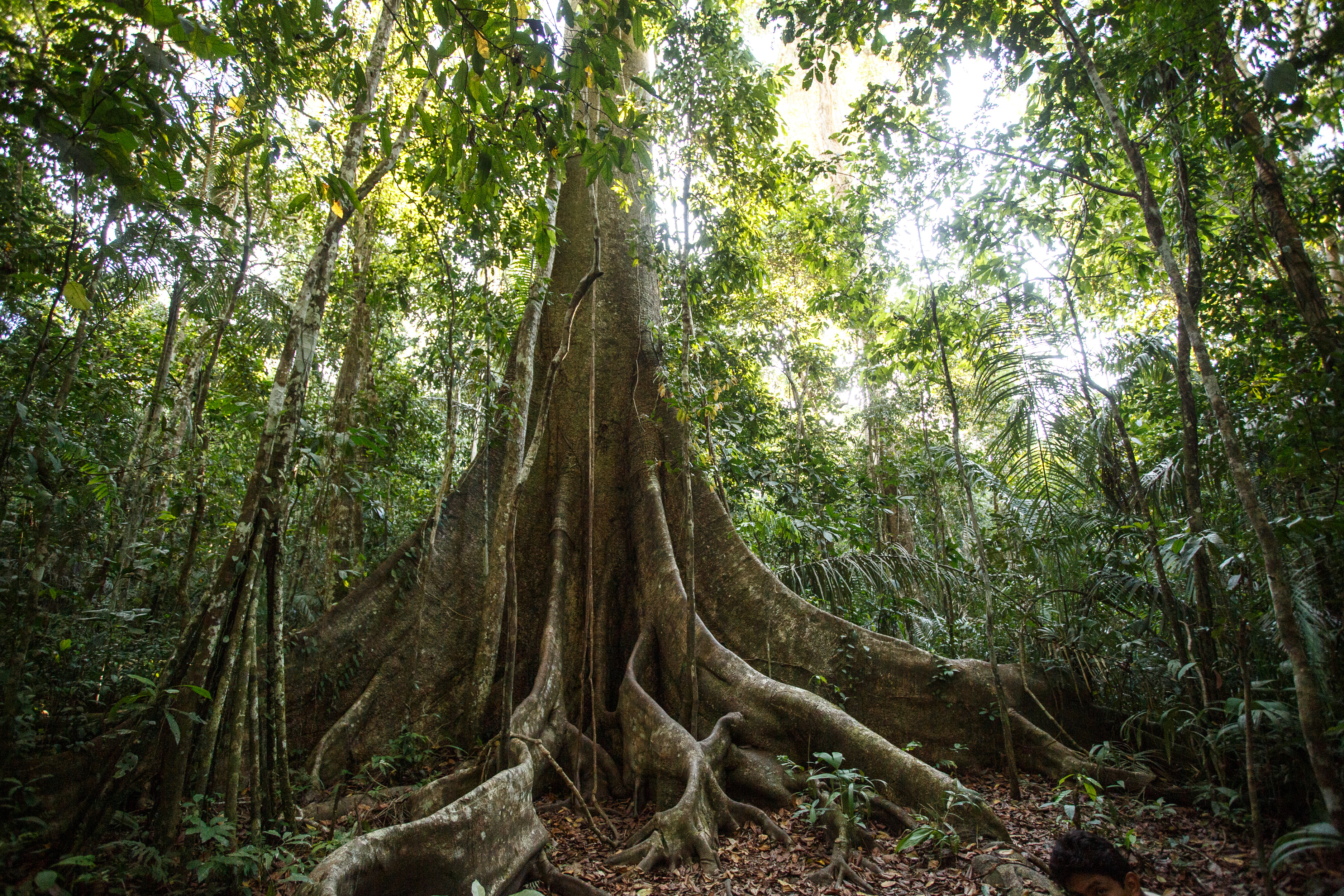
What are the factors which lead some faith communities to develop strategies to defend the rights of rural, low-income, and Indigenous communities in natural resource governance disputes?
This research project seeks to gain a greater understanding of faith communities as civil society actors in natural resources governance disputes in Brazil, Colombia, and Mexico. It analyses in particular their role in shaping the civic space, and the resources they mobilize, whether at the discourse or organizational level, to resolve disputes.
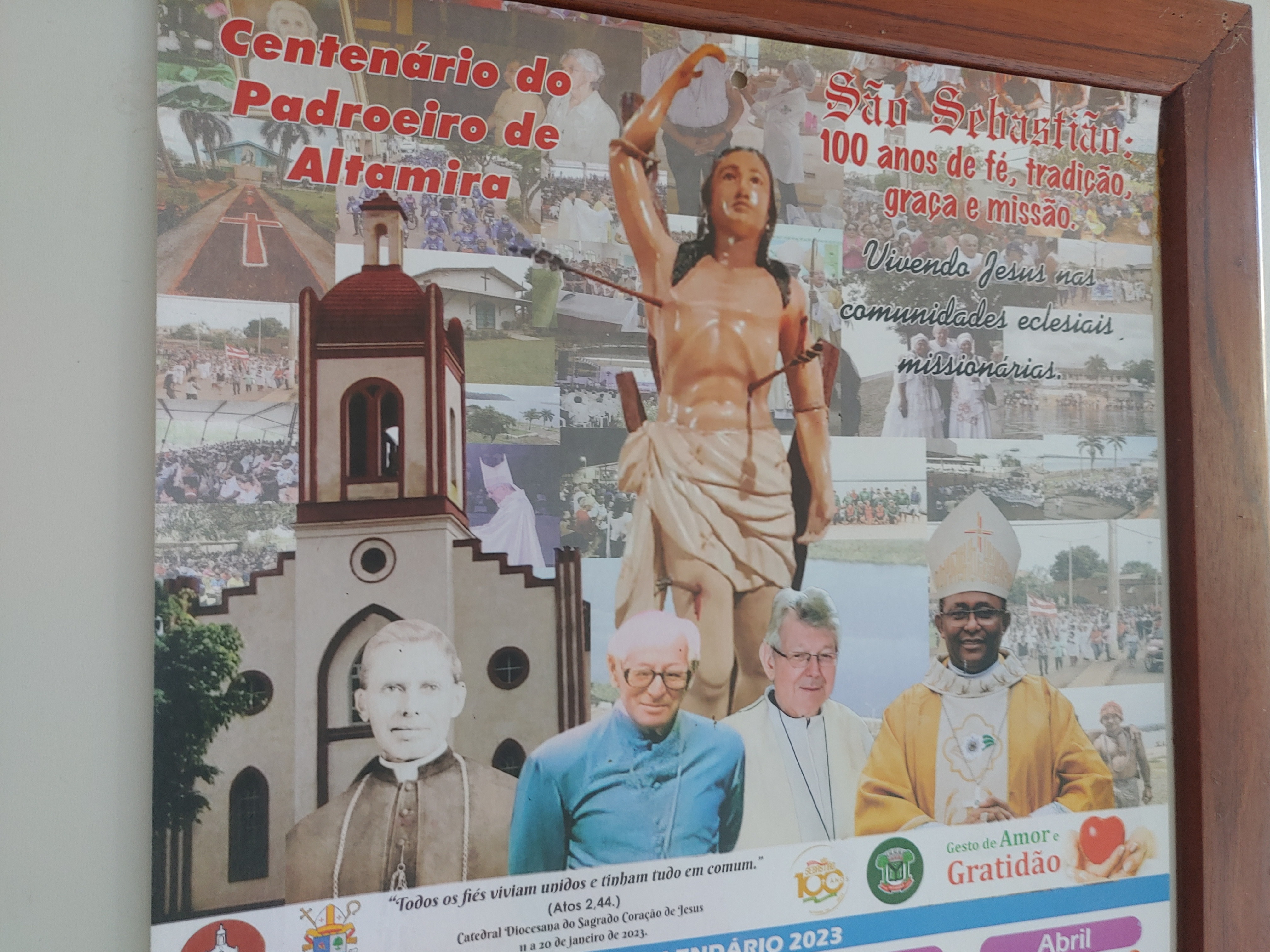

‘The connection with life is the source of hope to reconstruct what has been destroyed. Without that connection, that strength coming from connection with forests, rivers and ancestors, there would be no motivation for the struggle. […] If we lose nature, we lose ourselves too. Our struggles are survival struggles. Rivers and forests are everything, without them, there is no life.’ (Movimento Xingu Vivo para Sempre representative, Brazil.)
Acknowledgements
This report was led by the WRI Faith and Sustainability and Laudato Si’ Research Institute teams and produced in collaboration with WRI Brazil, WRI Mexico, and three researchers from Brazil, Colombia, and Mexico.
We are very grateful to Tony Bebbington for his support for the project and to the Natural Resources and Climate Change Program at the Ford Foundation which funded the research.
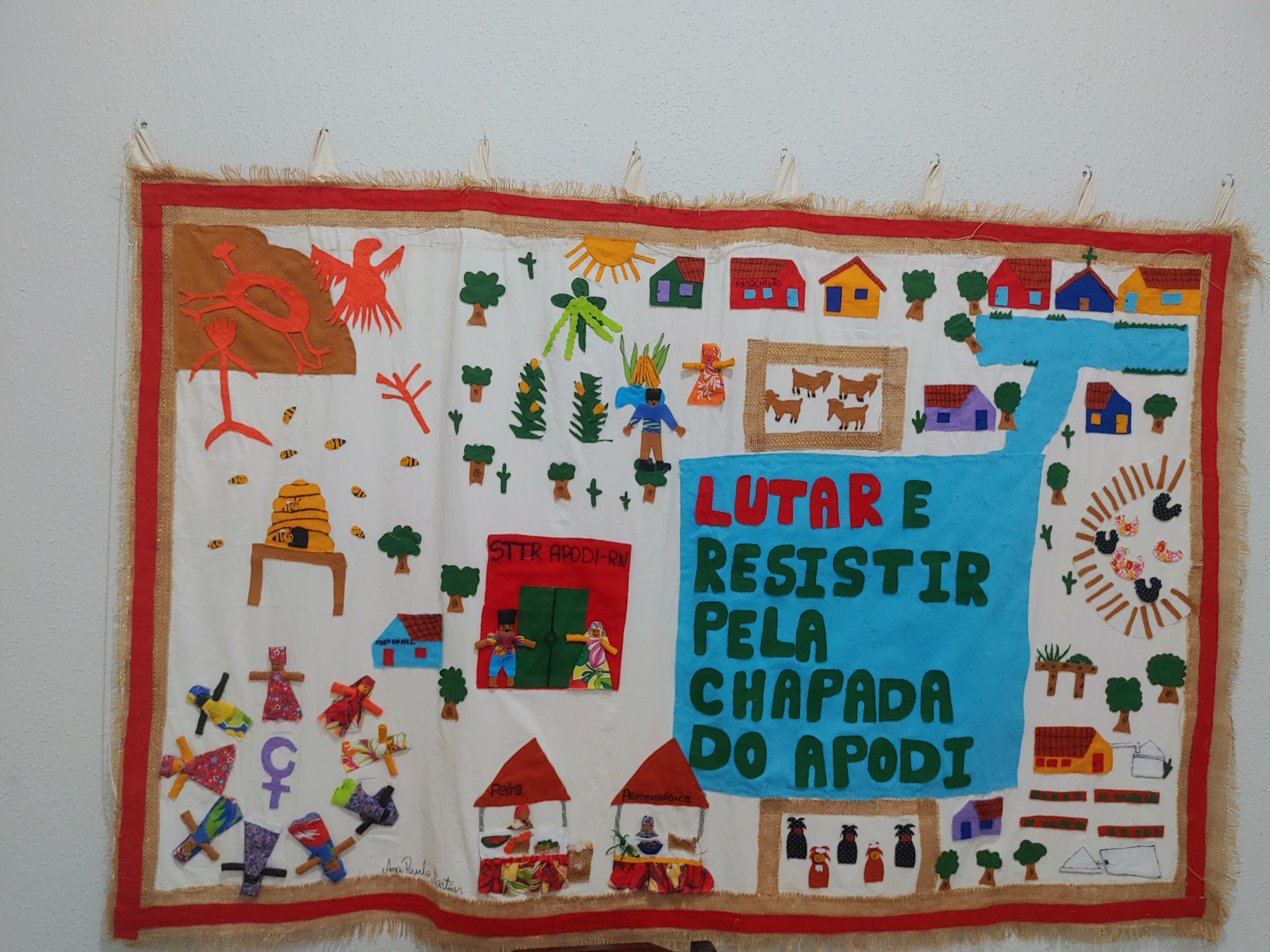
The research was made possible thanks to the contributions of time and experience from the communities where the case studies took place, whom we thank for their trust, collaboration, and support: Apodi Rural Workers Union, Assembly of God Church of Altamira, Baptist Church of Apodi, Black Women's Movement of Altamira, Catholic Church of Apodi, Comisión por la Vida del Agua, Compañía de Jesús, Congregation of the Sisters of Notre Dame, Diaconia Network and the Municipal Secretariat of Agriculture of Apodi, Diocese of Xingu, Diócesis de San Cristóbal de las Casas, Franciscan Sisters of Altamira, Gobiernos Comunitarios, Hermanas del Divino Pastor, Indigenous Leaders of the Juruna Peoples, March 8 Feminist Center, Misión de Bachajón, Modevite Chiapas, Movement of People Affected by Dams of Altamira (MAB), Paiacu Indigenous Center, Pastoral Land Commission of Altamira (PA) and Apodi (RN), Universidad Iberoamericana, Women's Movement of Altamira (PA), Xingu Movement Forever Alive, Xingu Riverside Council.


